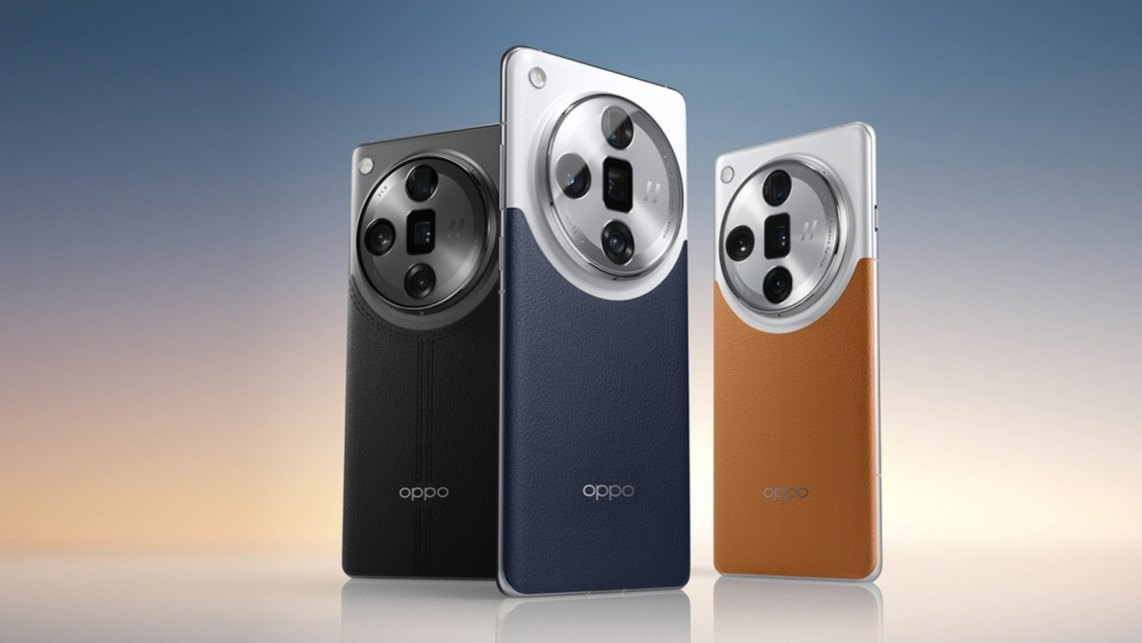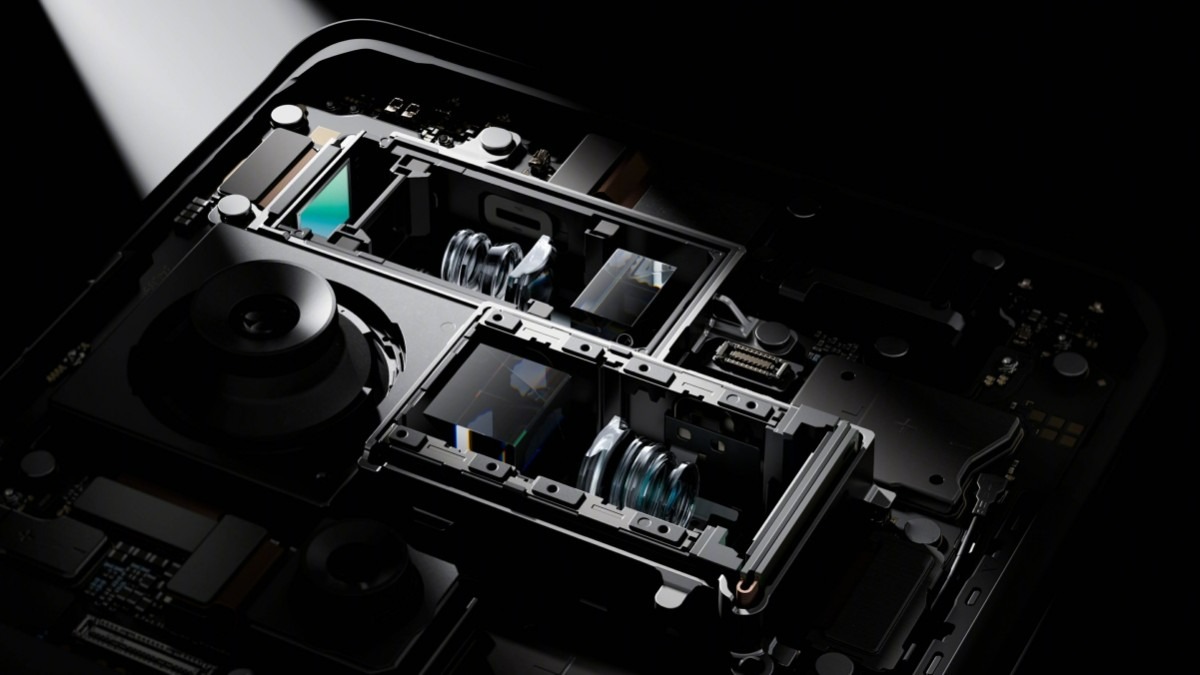Oppo has announced the Find X7 Ultra, a new flagship phone that sports two periscope cameras; that's a world first.
While periscope cameras are now fairly common in some of the best phones, having a pair of them in a single rear-camera array is new, due to the components and lens stacking needed to get them to work while keeping telephoto camera modules from protruding too far out of a phone's rear.
Oppo's HyperTone Camera System (more on that in a moment) promises fast shooting, flexible optical zooming, AI enhancements and "pro-grade" Master Mode option as part of the brand's partnership with camera specialists Hasselblad.
Add a Qualcomm Snapdragon 8 Gen 3 and a 5,000mAh battery with support for Oppo's SuperVOOC fast charging, and the Oppo Find X7 Ultra is shaping up to be a phone to challenge the likes of the Samsung Galaxy S23 Ultra and iPhone 15 Pro Max .
HyperTone Camera System
With 50-megapixel sensors across all four cameras, Oppo’s HyperTone Camera System has specs that promise sharp and details photos from all manner of shots.
The primary camera is a large, 1-inch type Sony LYT-900 sensor that offers a 23mm focal length, f/1.8 aperture, with optical image stabilization. The Find X7 Ultra is the first phone of 2024 to use this sensor, and promises to cut light reflection by 50% while still capturing a detailed shots.
A untal-wide-angle camera using a LYT-600 sensor that provides a 14mm equivalent focal length and f/2.0 aperture, is touted to offer dynamic macro photography at 4cm and shots of expansive scenery at a 14mm equivalent focal length.
Next is a Sony IMX980 sensor which provides 3x zoom on the first periscope telephoto camera, and is the same camera found in the previous Oppo Find X6 Pro that impressed up. And a Sony IMX858 sensor offering 6x zoom and equivalent to 135mm, is the second periscope camera, and should be good at capturing long-range shots without losing too much in the way of clarity and sharpness.
These larger-than-standard sensors used in the camera system should also allow for overall improved low-light performance and image quality over previous Oppo Find flagships.
Ideally, this setup would create a smooth and seamless zoom photography that would remain consistent throughout the camera array's entire focal range.
The front of the camera uses a 32-megapixel f/2.4 camera for self-portraits and video calls.
Of course, camera specs and hardware are one thing in smartphones, the second part of the mix is in on the software side. Here Oppo touts is HyperTone Image Engine aimed at preventing HDR photography from over-processing images and overexposing mid-tones and over-sharpening details leading to an unnatural photos. In the past, we've found Oppo has been rather good at this, if not quite class-leading. So hopefully, Oppo can deliver some impressive results with the Find X7 Ultra.
There are also two Hasselblad modes. The Hasselblad Portrait Mode aims to bring a portrait shot style that echoes those of classic Hasselblad cameras by capturing shots at four focal lengths to produce cinematic bokeh with foreground and background depth.
The Hasselblad Master Mode offers a shooting mode designed to match the characteristics of the Hasselblad X2D 100C camera, with a host of manual controls. This mode enables RAW MAX, which not only captures full 50MP images but will also benefit from the computational photography chops of the Find X7 Ultra, with photo that have a 16-bit color depth and 13 stops of dynamic range. This feature sounds a lot like Apple's ProRAW mode on its recent iPhones, where RAW photos have some smart processing applied to then let people edit them further, rather than just start with a pure RAW image to manipulate.
Oppo Find X7 Ultra specs


While the camera appears to be a point focus for the Oppo Find X7 Ultra, the rest of its specifications aren’t lacking either. It will be powered by the latest Snapdragon 8 Gen 3 chip, supported by LPDDR5X RAM in either 12GB or 16GB configurations.
There are three configurations of the Oppo’s Find X7 Ultra, a 12GB RAM model paired with 256GB internal memory, a 16GB option with 256GB storage, and lastly, a 16GB paired with 512GB storage. Onboard storage uses the latest UFS 4.0 standard; there's no option for microSD expansion.
Oppo Find X7 Ultra's battery comes in at 5000mAh cell with support for the company's SuperVOOC 100W fast charging and 50W wireless charging.
The Oppo’s Find X7 Ultra has a 6.82-inch display with a 3,168 x 1,440 resolution and 120Hz refresh rate with up to 4,500 nits brightness that should make it sharp and bright for watching films, gaming, and viewing your best photos.
There are three color options for the Oppo Find X7 Ultra: Ocean Blue, Tailored Black, and Sepia Brown.
Not available outside of China
Sadly, just like its predecessor, the Oppo Find X7 Ultra is only available in mainland China at the moment with no plans for a global release on the cards.
Pricing for the Oppo Find X7 Ultra also reflects its flagship status starting at ¥5,999 in China or around $845 / £663 / AU$1,281 for the 12GB RAM and 256GB storage version and ¥6,999 (around $986 / £773 / AU$1,495) for the 16GB RAM paired with 512Gb storage.
But for smartphones you can buy right now, check out our round up of the best Android phones.
You might also like
from TechRadar - All the latest technology news https://ift.tt/PcdvE9L
No comments:
Post a Comment